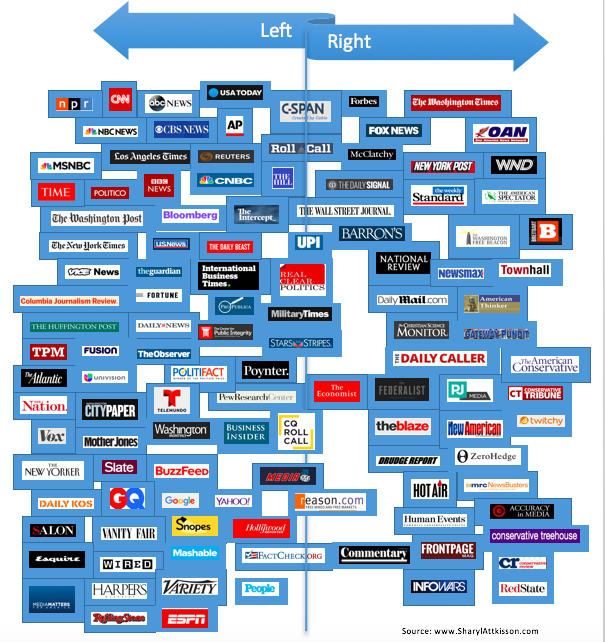One Big Reason to Doubt Tech Has a Liberal Bias
Above all, Silicon Valley’s denizens are capitalists and don’t want to alienate potential customers.
Bloomberg, August 27, 2018.
Warning investors not to get lost in their own filter bubbles is a regular plank of this column. As behavioral economics has taught us, it is easy to get caught up in our own biases, beliefs and preexisting prejudices. Human psychology can be affected by outside forces in subtle ways we may not even be aware of.
This has potentially negative ramifications for anyone’s investment process.
I was reminded of this again this past weekend when we had some friends and their kids over for some swimming and a barbecue.
All of their kids, ages 6 to 14, seemed permanently attached to their iPads. But when the oldest kid asked me “Why does Alexa hate Jesus?” I was taken aback.
Apparently, he had seen this video, which seems to suggest Alexa is not a fan of Jesus Christ (the video was later shown to be a hoax). So I suggested we ask Alexa a few questions to see if she (it?) really does dislike Christ. We asked Alexa:
“When was Jesus born?”
“Who is Jesus Christ?”
“Is Jesus Christ Lord and Savior?”
All of the answers satisfied the boy, who attends a Catholic school in the New York. Although that hoax was debunked, it raised a bigger and more interesting question: Is there a liberal bias to technology?
This question came up recently when Twitter Inc. Chief Executive Officer Jack Dorsey told CNN that the company does not allow personal ideology to influence the determination of “what is and is not appropriate behavior on the platform.” But during the discussion, he said “We need to constantly show that we are not adding our own bias, which I fully admit is more left-leaning,”
A quick note about Alexa, or Siri or Google Assistant, or any other voice-enabled technology. The algorithms they operate on convert spoken words into a language the device can use to search online databases such as Wikipedia, IMDB, Google and Amazon. The entire process has slowly improved, with each subsequent inquiry and answer helping to refine the process.
A number of extreme partisans have found ways to weaponize these open platforms on the internet, from Facebook, to YouTube, to Twitter. They are not seeking the truth, but rather, trying to sell readers on something — a product, newsletter or political viewpoint. As it turns out, this can be a lucrative business. The danger to investors comes about when weaponized fictions infiltrate our own information diet.
This is inconsistent with Ray Dalio’s philosophy of hyperrealism. The founder of Bridgewater Associates, the world’s biggest hedge fund, suggests that all investors must “embrace reality.” Believing things that are objectively false isn’t the way anyone becomes a successful investor.
But what about the so-called left-leaning bias at technology companies? Isn’t this a risk to both society and investors alike? There are several answers to this. The first is that people at tech firms tend to be young, college-educated and live in technology hub cities like San Francisco or Seattle or Boston. Those demographic qualities do tend to lean to the left.
This does not mean, however, that the platforms themselves are biased. Almost 63 million people voted for Donald Trump in the 2016 presidential election. Why would any major mainstream company want to risk alienating that many potential customers? The denizens of Silicon Valley are, above all else, capitalists. If you believe that businesses are mostly out to make as much profit as possible, there’s no way to make a coherent case that they embrace any political beliefs at all. Just the opposite: Most of the time, companies in tech and elsewhere go out of their way to avoid taking political stands.
I know some will argue that the Washington Post, a newspaper whose editorial stand is pretty clearly liberal (and where I used to publish Personal Finance columns), reflects the views of its owner, Amazon.com Inc. CEO and founder Jeff Bezos. Maybe it does, though I’ve never heard him express any distinct political views and the newspaper has said he plays no role in its editorial decisions. But political bias at Amazon itself? I suppose it has workplace policies that some might consider liberal, in keeping with a company based in Seattle. But I doubt those policies are that much different from other big employers in the city.
What can investors take away from this? There are facts, and there is what we want to believe regardless of the facts. The latter is the path to surefire investment disaster.


